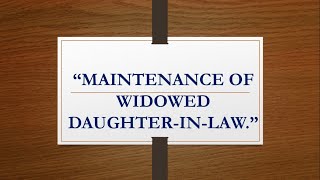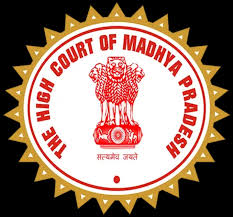Sanjay K. Agrawal, J
1. The substantial question of law involved, formulated and to be answered in the second appeal preferred by the plaintiffs is as under:-
Whether entries in record of rights maintained by the Revenue Authorities do not confer any title on plaintiffs/appellants ?
[For the sake of convenience, the parties would be referred hereinafter as per their status shown and ranking given in the suit before the trial Court].
2. Original plaintiff-Thakurram filed a suit for declaration of title and permanent injunction stating inter-alia that he is title-holder of the suit land and
defendants No.1 to 3 have no right and title to interfere with his peaceful possession and consequently, decree as prayed for be granted in his favour.
3. The defendants filed their written statement denying the plaint allegation and claimed title and possession over the suit land. The trial Court after
appreciating oral and documentary evidence available on record, by its judgment and decree dated 18.1.1999 decreed the suit, which was reversed by
the First Appellate Court, against which, this second appeal under Section 100 of the CPC has been filed by the appellants/plaintiffs, in which
substantial question of law has been framed by this Court, which has been set- out in the opening paragraph of this judgment.
4. Mrs.Kiran Jain, learned counsel for the appellants/plaintiffs, would submit that a copy of record of rights, which was prepared under Section 115 of
the Madhya Pradesh Land Revenue Code, 1959 (hereinafter called as ""the Act of 1959"") would confer title to the plaintiffs over the suit land,
therefore, the First Appellate Court is absolutely unjustified in dismissing the suit by granting appeal, as such, the second appeal deserves to be allowed
and the judgment and decree passed by the First Appellate Court deserves to be set aside.
5. On the other hand, Mr.Vivek Tripathi, learned counsel for respondents No.1 to 3, would support the impugned judgment & decree and submit that
entry in revenue records does not confer title on person whose name appears in record of rights and title can only be decided by competent civil
Court.
6. I have heard learned counsel for the parties and considered their rival submissions made herein-above and also went through the records with
utmost circumspection.
7. It is the case of the original plaintiff-Thakurram that he has purchased the suit land from defendants' father in public auction and thereafter he
became title and possession holder of the said land and his name was recorded in revenue records including Ex.P/1, which is copy of adhikar abhilekh
prepared under Section 115 of the MP Land Revenue Code, 1954, in which the plaintiff's name is recorded as Bhoomiswami in the suit land bearing
No.1007/4 area 2.36 acres with the following note:-
...
.. 1 / - 16 /75-76 . 1 6 .5 .7 7 0
1007/1 0.955 1.25
8. On behalf of the plaintiffs, three witnesses namely Ramcharan (PW-1), Shivkumar (PW-2) and Maheshram (PW-3) have been examined. On
being asked by counsel for the defendants, all these witnesses have clearly stated in their cross-examination that Shri Thakur Ram-original plaintiff
had purchased the suit land from the defendants' father Sunder Sai in public auction and obtained ownership and possession. On the other hand, the
defendants' witnesses Rajkumar (DW-1), Kewla Bai (DW-2), wife of Sunder Sai (original holder of land) and Haitram (DW-3) all have denied the
fact of public auction and purchase by original plaintiff-Thakur Ram for want of knowledge. The above-stated piece of evidence followed by entry in
Ex.P/1 clearly establishes the fact of acquisition of title by original plaintiff-Thakur Ram in public notice, which is duly recorded in Ex.P/1 i.e. copy of
adhikar abhilekh which was prepared under Section 115 of the MP Land Revenue Code, 1954 on the basis of jamabandi of the year 1954-1955
9. Reverting to the facts of the present case, the trial Court has granted decree in favour of the plaintiff relying upon the document Ex.P-1 which is
the copy of adhikar abhilekh panji and which was prepared under Section 115 of the M.P. Land Revenue Code, 1954 (for short, 'the Code of 1954')
on the basis of jamabandi of the year 1954-55.
10. Section 103 of the Code of 1954 provides for record of rights which reads as under: -
103. Record-of-rights--A record-of-rights shall be prepared and maintained for every village and such record shall include the following particulars :--
a) the names of all persons, other than tenants, who are holders of land ;
b) the names of all occupancy tenants and protected lessees ;
c) the nature and extent of the respective interests of such persons and the conditions or liabilities, if any, attaching thereto ;
d) the rent or land revenue, if any, payable by such persons ; and
e) such other particulars as may be prescribed.
11. Sub-section (6) of Section 105 of the Code of 1954 states that an entry in the records of rights shall be presumed to be true until the contrary is
proved or a new entry is lawfully substituted therefor.
12. Section 115 of the Code 1954 provides record of rights at commencement of the Code which reads as under: -
115. Records-of-rights at commencement of Code .-- (1) Until a record-of-rights for the Central Provinces and merged territories is prepared in
accordance with the provisions of section 103 the jamabandi for the agricultural year immediately preceding the year in which this Code comes into
force, shall, so far as it contains the particulars specified in section 103, be deemed to be the record-of- rights.
(2) The jamabandi referred to in sub-section (1) shall be published in the village in such manner as may be directed by the Collector.
(3) Objections may be filed to any entry in the jamabandi and the provisions of section 105 shall apply to the objections as they apply to an entry in the
mutation register and the entries shall be corrected after certification as provided for in that section.
13. As such, record of rights prepared under the Code of 1954 shall be presumed to be true until the contrary is proved or new entry is lawfully
substituted therefor.
14. Thus, it appears that the document Ex.P-1 has been prepared on the basis of jamabandi 1954-55, which was prepared in accordance with Section
103 of the Code of 1954 and it has presumptive value under Section 105(6) of the said Code, as it is prepared in accordance with Section 115 of the
Code of 1954.
15. The Supreme Court in the matter of Chhote Khan and others v. Malkhan and others AIR 1954 SC 575 while dealing with entry in record of rights
prepared under Section 31 of the Punjab Land Revenue Act which has presumptive value under Section 44 of that Act, held as under: -
20. By section 44 of the Punjab Land Revenue Act an entry made in the record of rights or in an annual record shall be presumed to be true until the
contrary is proved. That entries in the Jambadies fall within the purview of the record of rights under section 31 of the Act admits of no doubt. Section
16 of the old Act (XXXIII of 1871) laid down that entries in the record of rights made or authenticated at a regular Settlement shall be presumed to be
true. ...
16. Similar is the proposition laid down by the Constitution Bench of the Supreme Court in the matter ofR aja Rajinder Chand v. Mst. Sukhi and others
AIR 1957 SC 286 in which it was held as under: - Â
19. It is not disputed that under S. 31 of the Punjab Land Revenue Act, 1887, Wajib-ul-arz is a part of the record-of-rights, and entries made therein
in accordance with law and the provision, of Ch. IV of the Act and the rules thereunder, shall be presumed to be true (vide S. 44). The Wajib-ul-arz or
village administration paper is a record of existing customs regarding rights and liabilities in the estate; it is not to be used for the creation of new rights
or liabilities. (see para 295 of the Punjab Settlement Manual, pp.146-147, 1930 ed.) ...
17. To the same effect is the decision of the Supreme Court in the matter of Abdul Waheed Khan v. Bhawani and others AIR 1966 SC 1718Â in
which while dealing with the entry made under Section 9 of the Bhopal State Land Revenue Act, 1932, the Supreme Court held as under: -
10. ... The scope of an entry in regard to the right to hold a land under S. 89(2) of the Act and the decision under S. 93 thereof is disclosed by S. 95.
When such an entry is made in the register of rights and is not corrected in the manner prescribed in S.93, under S. 95 it shall be presumed to be
correct until the contrary is proved. The effect of such an entry, therefore, is only to make it a presumptive piece of evidence in a collateral
proceeding: that is to say, in a suit based on title when such an entry is relied upon by one or other of the parties, the Court shall presume it to be
correct unless the other party rebuts the presumption. Not only S 95 does not by necessary implication bar a suit but also assumes that in such a suit
the correctness of such an entry could be questioned subject to the said presumption.
18. Thus, on the basis of above-stated discussion, it is quite vivid that entry (Ex.P/1) is clearly prepared on the basis of jamabandi of the year 1954-55
which was record of rights prepared & maintained in accordance with Section 103 read with Section 115 of the Code of 1954 and it has presumptive
value to be true under Section 105 (6) of the said Code and said entry has not been rebutted by leading appropriate evidence on behalf of the
defendants and as such, the plaintiff has established his title over the suit land. Even otherwise, the plaintiffs have established the fact that their father
has purchased the suit land from the defendants' father Sunder Sai in public auction and became title and possession holder, as such, the First
Appellate Court is absolutely unjustified in reversing the well merited judgment and decree of the trial Court. The substantial question of law is
answered in favour of the plaintiffs and against the defendants.
19. Accordingly, the judgment and decree of the First Appellate Court is set aside and that of the trial Court is restored.
20. The second appeal is allowed to the extent indicated hereinabove with no cost(s). A decree be drawn up accordingly.

